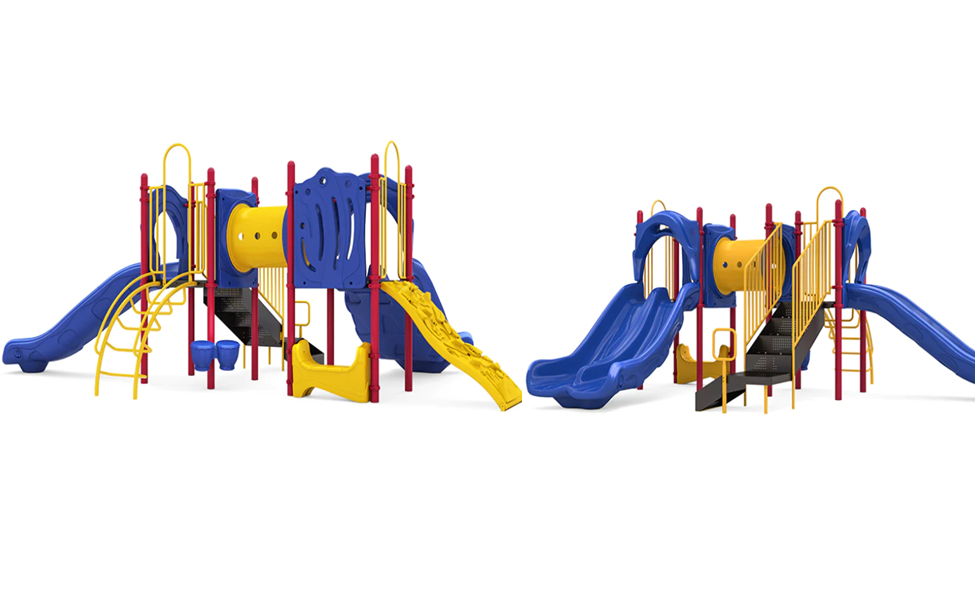A playground is one of the most important places for children’s social and emotional development because, in this environment, young children can learn valuable communication skills through play and shared activities. Children learn to express their ideas, listen to others, and develop healthy relationships through interactions in this environment. Children’s benefits from playgrounds are invaluable and provide a solid foundation for effective relationships in all aspects of their lives. Therefore, it is essential to encourage and support playground play to promote holistic development in children. In this article, we will learn how children learn to interact in the playground and why this space can be considered a proper school of communication.
Experimentation and social learning
The playground allows children to experiment and learn through interaction with their peers, trying different ways of communicating, learning social norms, and developing cooperation and conflict-resolution skills. As they play together, children learn to read nonverbal cues, interpret facial expressions, and understand body language to communicate more effectively, be more understanding, and better interpret each other’s messages – skills that will serve them throughout their lives.
Language and vocabulary development
During playground play, children are confronted with various situations that require verbal communication to express their needs, establish rules, or ask for help. Through these interactions, children expand their vocabulary, learn new words, and build a solid foundation for language development. In addition, they also learn to adapt their language according to the needs of their audience, whether it is a friend, play leader, or supervising adult.
Expression of emotions and empathy
A playground is a testing ground for children’s expression of emotions and capacity for empathy because here, they learn to identify and express their feelings and recognize and respond to the emotions of others. These interactions allow them to develop social and emotional skills crucial to their well-being and success in future relationships because even in a playground, conflicts are inevitable. Still, they are also learning opportunities as children learn to resolve disputes, negotiate, and seek peaceful solutions. Playground interactions teach them to communicate effectively, to listen to others, and to consider different perspectives. These skills are fundamental to healthy and respectful communication throughout their lives.
Inclusion and respect for diversity
Children interact with peers from different cultural, social, and ethnic backgrounds in playgrounds. This diversity allows them to learn about other cultures, develop respect for differences, and foster inclusion in their communication. Early exposure to diversity at the playground can help children become more tolerant and respectful adults.
Playgrounds become a gathering place where children of different cultures, languages, communities, ethnicities, or others can play together without differences, united by play, laughter, and shared moments, making this an enriching experience that will help children respect differences, learn more about other cultures and have greater empathy for their peers.
What did you think of this topic? Do you want to know more about communication skills in children?
If you want a playground for your project, community, school, daycare, or public park, contact us by visiting the following link.
